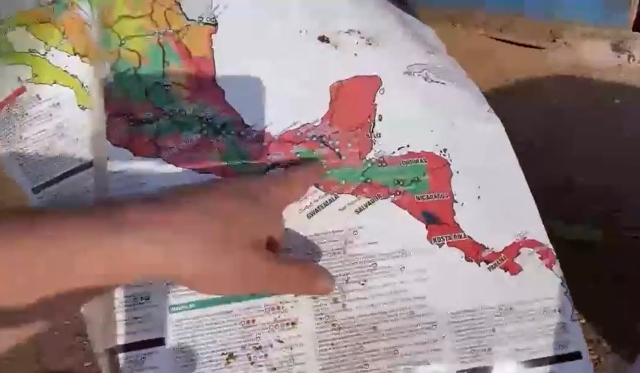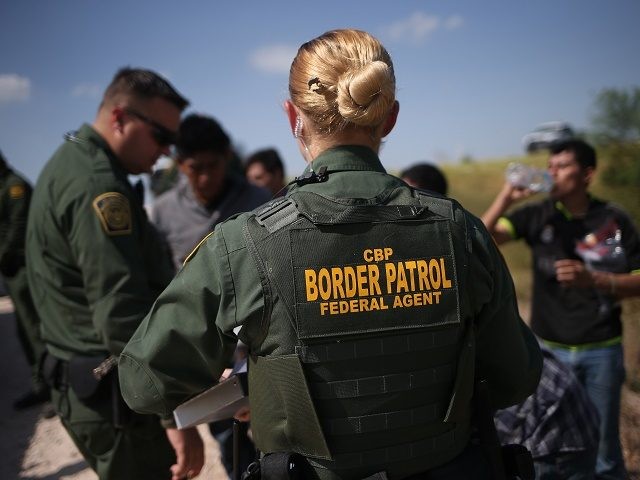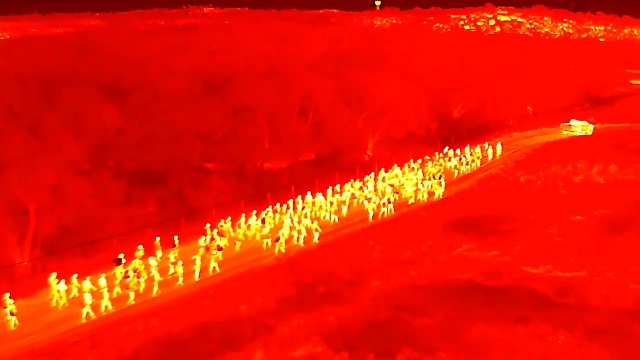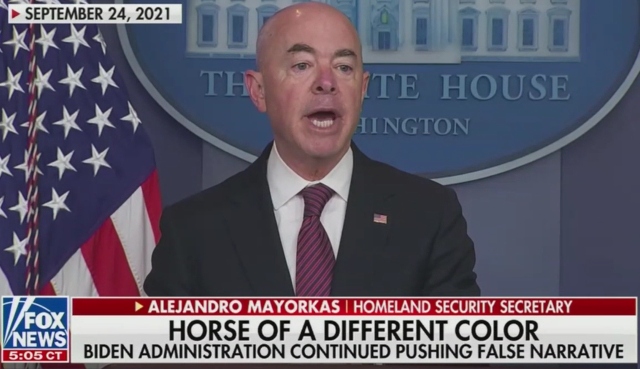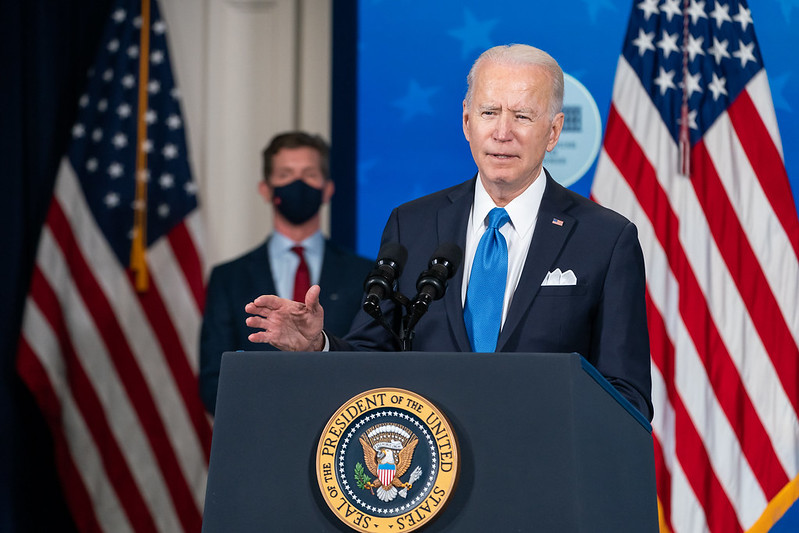
Joe Biden has already committed a number of impeachable offenses in the minds of many, but perhaps the worst offense is his refusal to enforce immigration laws.
On his first day in office, Biden signed dozens of executive orders and actions, among them reversing nearly all of President Donald Trump's border security and immigration enforcement policies, putting our country at risk and literally destroying American sovereignty.
What happened next was predicted: Our southwest border, which was essentially secure under Trump, immediately became inundated with record numbers of illegal migrants. What's more, instead of turning them away as the law requires, the regime's lackey, Department of 'Homeland Security' Secretary Alejandro Mayorkas, instructed border and immigration agents to release most of those who crossed illegally into the heartland of the country.
Both of these men are in serious violation of U.S. laws and the Constitution, and they have been repeatedly taken to court over their horrid policies. But for some reason, writes Andrew Arthur, the resident fellow in law and policy for the Center for Immigration Studies, none of the states have argued that Biden and his DHS Toadie are in violation of the most important border security law, the Secure Fence Act of 2006.
Arthur points out in a recently published analysis that the law is not just about 'fences,' but in reality, is one of the most significant in terms of mandating that administrations ensure full enforcement of border integrity:
“The Southwest border, which prior to January 2021 was in pretty good shape, is teetering on dissolution due largely to President Biden’s ham-handed rescission of nearly all of the policies his predecessor implemented to deter illegal migration there,” Arthur's legal analysis begins.
“States have sued (thus far, successfully) to block Biden from rescinding the most effective of those Trump policies, but for some reason neither they nor reviewing courts have paid attention to the most important border law — the Secure Fence Act of 2006,” Arthur continued.
Its title notwithstanding, the Secure Fence Act is not just about building fences at the border, although that is what it is best remembered for.
Rather, the fences and other infrastructure that the bill authorized and mandated were intended to be just a part of a regime to secure the nation’s borders, and in particular the Southwest border. That’s not to say that the Northern border was given short shrift, but the bill simply authorized a study of the need for and feasibility of erecting infrastructure along the 49th parallel, it did not mandate construction there.
By contrast, the Secure Fence Act was rather exacting (and specific) when it came to “fencing and security improvements” between the Gulf and Mexico and the Pacific Ocean.
Signed into law by then-President George Bush, Section 2 of the measure mandates “achieving operational control on the border,” something that is simply not occurring given the record numbers of encounters with illegal migrants since Biden took office and reversed Trump’s policies.
Why Isn’t Anyone Talking About the Most Important Border Law?
The Secure Fence Act of 2006 isn’t just about fences — it mandates that DHS prevent all illegal entries https://t.co/tK8AOotqr0 via @CIS_org
— Mark Krikorian (@MarkSKrikorian) April 8, 2022
Mayorkas is required under the law to ensure “operational control,” Arthur points out.
“It is a congressional mandate that the secretary of Homeland Security is required to meet under Section 2(a) of the Secure Fence Act, which states as follows,” he noted, adding the relevant section:
Not later than 18 months after the date of the enactment of this Act, the Secretary of Homeland Security shall take all actions the Secretary determines necessary and appropriate to achieve and maintain operational control over the entire international land and maritime borders of the United States.
In addition, both men are also violating an older law, Section 235 of the Immigration and Nationality Act, which requires that all migrants caught crossing illegally into the U.S. be detained (or deported) until their cases are heard by an immigration judge.
Without a doubt, Biden and Mayorkas are refusing to do the jobs they swore to do and they need to be charged and held accountable.
Sources include:
Please contact us for more information.
















